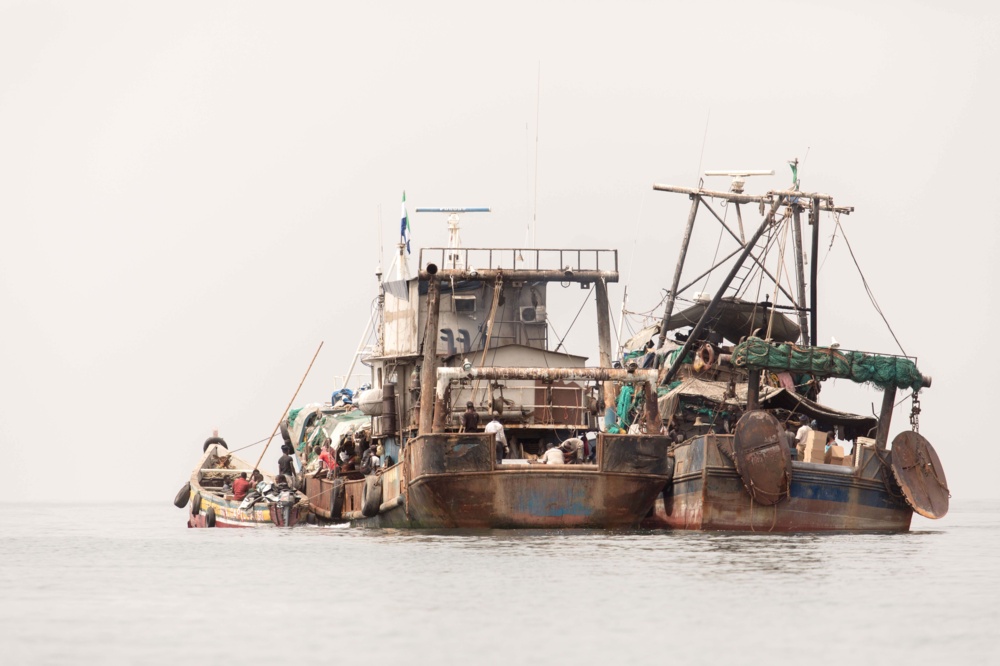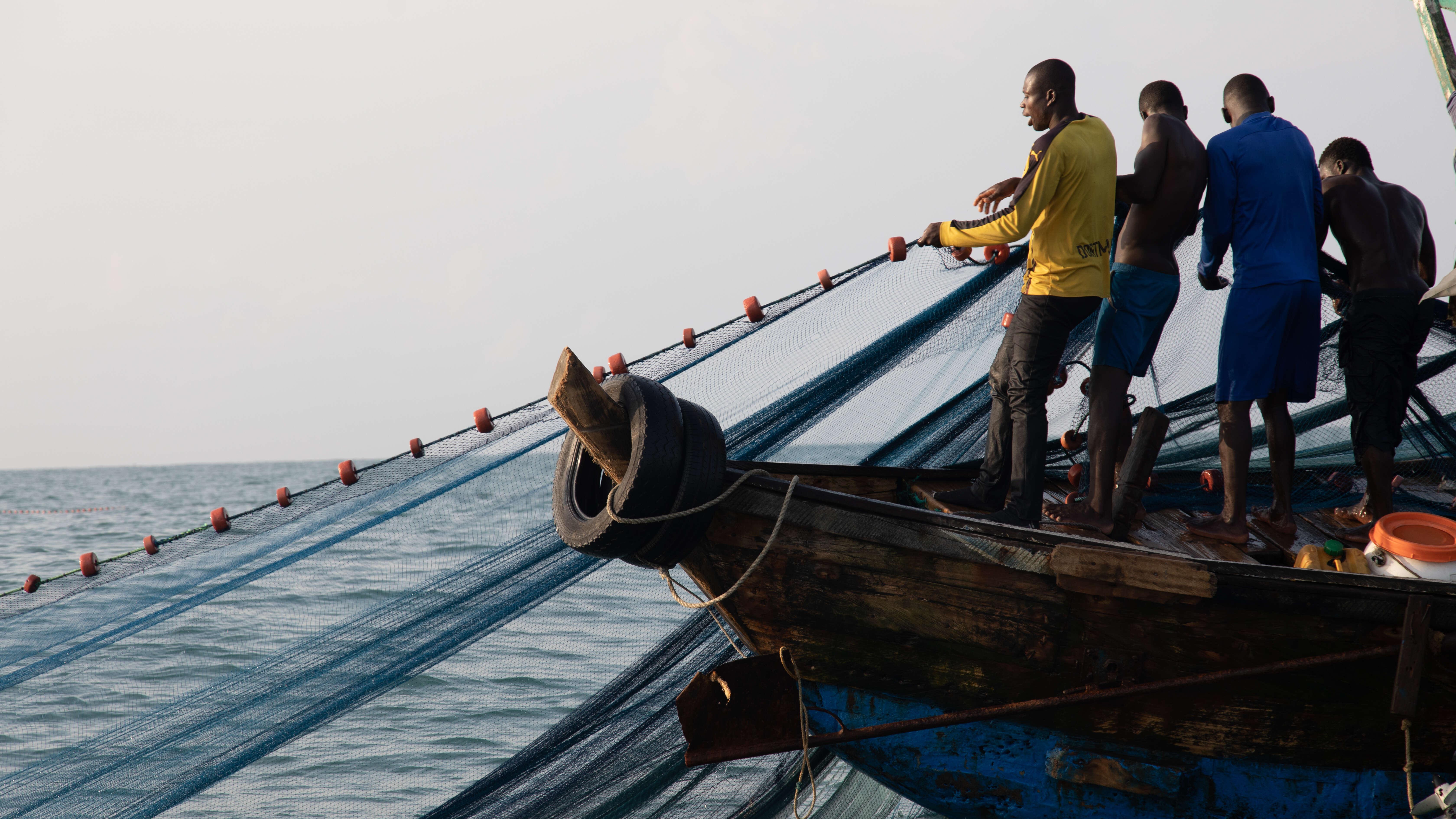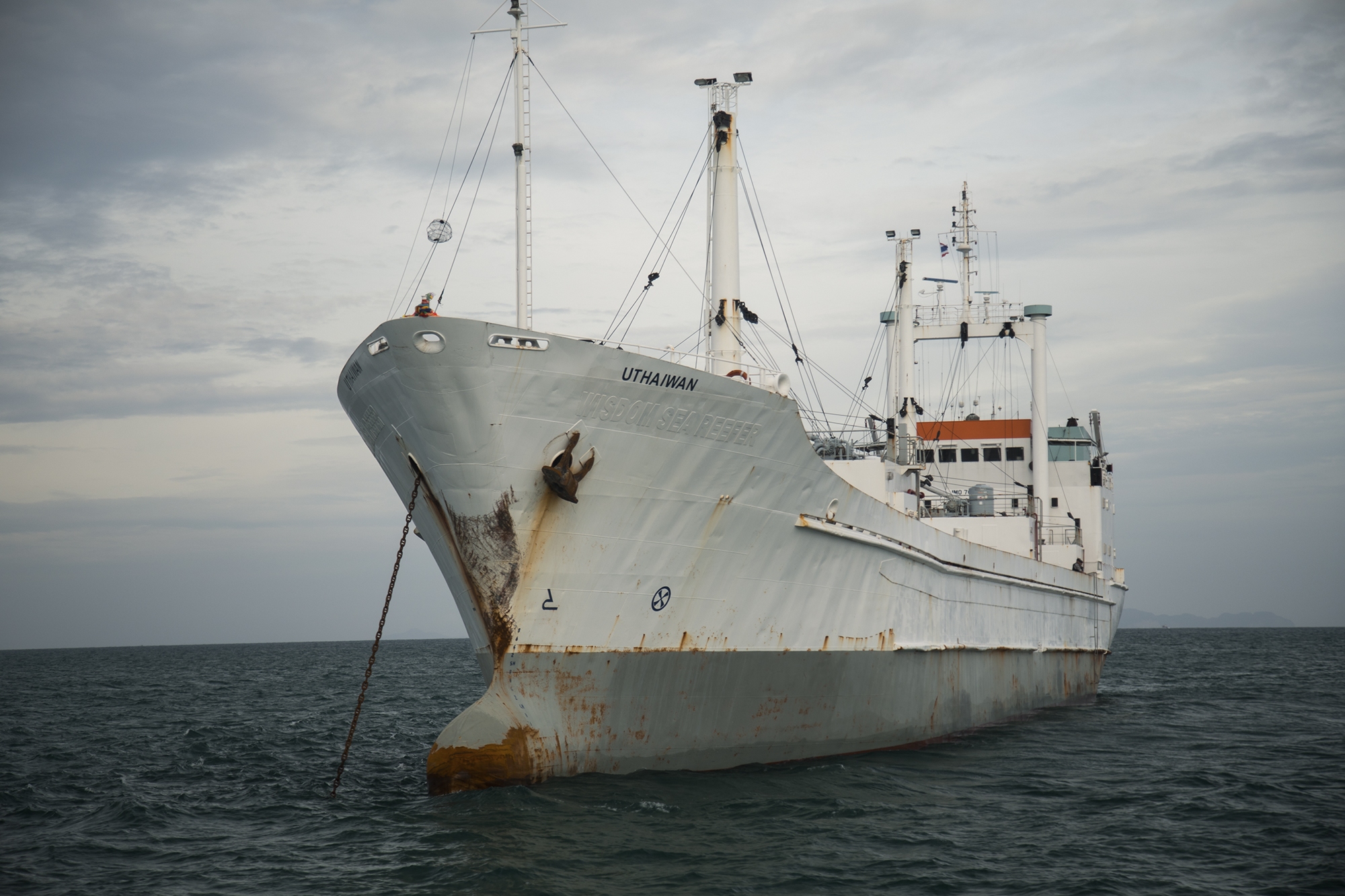
Unite for stronger global ocean governance
As economies began to lock down to slow COVID-19’s progress, some crimes fell, but one illicit sector was booming. In the coastal waters of Africa, Asia and Latin America and on the high seas, illegal fishing operators are using this tragedy – and the curtailment of enforcement measures – as their opportunity to profit.
These modern-day ‘pirates’ are devastating marine environments and impacting millions of people. As the pandemic continues to draw attention away from environmental needs, EJF argues that transparency, better fisheries governance and a new United Nations (UN) high seas treaty are essential for the future of the oceans and for vulnerable nations hoping to implement a ‘Blue Recovery’.
Throughout the spring, EJF received photographs from ‘Joseph’, (name changed to protect his identity), our long-term contact on Sierra Leone’s remote Sherbro Island. His photos show the illegal trawlers operating in areas ostensibly reserved for local fishers who totally rely on their daily catch for their livelihoods.
Illegal fishing is nothing new to West Africa – the Gulf of Guinea’s rich waters have long drawn the attention of foreign fishing fleets. However, industrial fishing boats are now ruthlessly exploiting the first wave of coronavirus, taking advantage of governments utterly stretched by the pandemic.
In their quest to exploit fishing grounds, illegal vessels threaten so much more than fish populations. Marine environments deliver irreplaceable resources for global socio-economic wellbeing and our shared natural environment and climate. They are a crucial source of food and income for millions of people.
In Sierra Leone, coastal ecosystems support the plentiful harvest of fish that comprise almost 10% of the country’s economy and the main source of animal protein. Seagrass beds and mangrove forests provide vital spawning and nursery grounds and store vast amounts of ‘blue carbon’. By depriving remote communities of food and income, illegal fishing forces people into activities such as wildlife poaching and cutting mangroves for charcoal that further undermine these ecosystems.
Over the past decade – and including through the Ebola epidemic – Joseph sent EJF geo-tagged photos of illegal trawlers. Since the COVID-19 pandemic took hold, his reports have increased in number, including one detailing five vessels that were fishing illegally in the area reserved for local fishers.
We sent his evidence to the Sierra Leone Government which promptly arrested three of the vessels – Hong Chang 1, Jian Mei 1 and Jian Mei 4 – and brought them to Freetown port. Each of the vessels was flying a Sierra Leone flag, yet their appearance and names strongly suggested links to China.
Across West Africa, Chinese-owned vessels are expanding their presence but without monitoring, control and surveillance, their operations all too often go unchecked. Even when arrests occur, sanctioning and deterring illegal fishing operators is difficult, impeded by the opacity of their true beneficial ownership. At the end of July, under cover of night, the three vessels simply fled, leaving their fines unpaid and their true identity and ownership unknown.
These three vessels represent a drop in the ocean when it comes to protecting global fisheries from illegal exploitation. Poor governance and a lack of transparency confound fisheries management, yet the solutions are often readily available, affordable and effective. For example, making mandatory the use of unique vessel identifiers such as an IMO number (akin to a car license plate) would make it impossible for unscrupulous fisheries operators to simply change their identity, ‘flag hop’ to a new fishing registry and avoid detection and penalties.
Over the past three years, EJF has developed a Charter for Transparency: a set of ten measures – including advocating the mandatory use of identification numbers – that have the power to transform global fisheries governance and ensure that the profiteers of illegal fishing are held to account for their crimes.
Beyond national waters, the rigorous application of transparency measures would transform fisheries management on the high seas that cover around half the Earth’s surface and two-thirds of the world’s ocean. We ignore the needs of the high seas at our peril: overfishing and illegal fishing, climate change, pollution and mining of the deep-sea floor are all increasing the threat.
Now, more than ever, we must secure a UN high seas treaty to protect at least 30% of the oceans by 2030 and ensure that key marine ecosystems can thrive. These goals are enshrined in RISE UP which EJF and over 300 other organisations have now signed. Treaty negotiations stalled when COVID-19 grabbed global attention, together we must unite and ensure they are put back on track as soon as possible.
If we think that our priority is to beat COVID-19 to protect our economies, then protecting the oceans must surely deserve greater attention in future: the world’s oceans are valued at around $3 trillion annually, supporting the livelihoods of over 3 billion people and representing the world’s seventh-largest economy. Action now will eliminate the need for far greater and more costly action later. Ocean protection cannot wait; neither can we.
This blog was originally published by Ocean Unite and is re-posted with permission.
SIGN UP FOR OUR EMAILS AND STAY UP TO DATE WITH EJF

